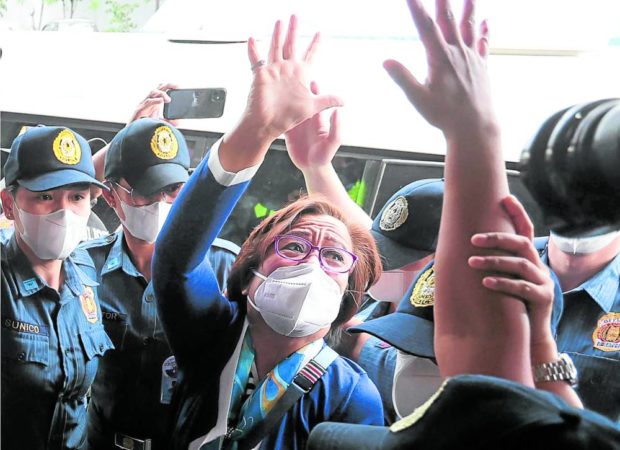
Leila de Lima —INQUIRER FILE PHOTO
MANILA, Philippines — The Inter-Parliamentary Union (IPU) called for the release of former Senator Leila de Lima, saying that it is “ever more convinced” that her detainment stemmed from her opposition to former President Rodrigo Duterte’s bloody war on drugs.
The IPU made the call in a decision adopted by its Committee on the Human Rights of Parliamentarians during its 170th session from Jan. 21 to Feb.2 in Geneva, Switzerland.
In the decision, the committee expressed “grave concern” that De Lima continues to be detained even after the key witness against her, Kerwin Espisona, stated that he was forced by former executive authorities to testify against her.
“[The committee] Is ever more convinced that the steps taken against Ms. de Lima came in response to her vocal opposition to the way in which the then President Duterte was waging a war on drugs, including her denunciation of his alleged responsibility for extrajudicial killings,” the decision read.
It then pointed out the “inexplicable length” of the criminal proceedings against De Lima with “no clear end in sight.”
It also highlighted the repeated violations of presumption of innocence, the questionable jurisdiction in which the accusations against her were made, the timing of the criminal proceedings, the amendments of the charges, and the reliance on the testimonies of drug traffickers who had either received favorable treatment in exchange for their testimony or were subjected to physical intimidation, including death, in prison, or had a personal vendetta against De Lima.
“[The committee] renews its call, in light of the foregoing, for Ms. de Lima to be released immediately and for the legal proceedings against her to be dropped; urges the authorities to take the necessary action forthwith,” said the IPU in the decision.
It said that an IPU trial observer will continue to monitor and report the cases before Branches 205 and 256 of the Regional Trial Court in Muntinlupa City, out of respect for fair-trial standards, and in order to assess if and how existing concerns about the legality and fairness of the proceedings are properly reviewed.
It then criticized how the Supreme Court did not rule on the public campaign of De Lima’s vilification, “thereby missing an important opportunity to condemn and end the public degrading treatment to which she has been subjected as a woman parliamentarian.”
De Lima has been detained since February 24, 2017, less than a year after President Rodrigo Duterte became the president of the Philippines, for drug charges which her camp said were “trumped up.”